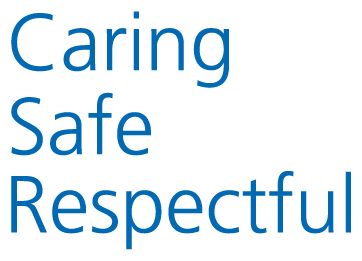Paediatric epilepsy team
Dr Cable, Dr Akhuemokhan, Dr Goldberg, Laura, Shelley and Kim
Contact Number: 01253 955545
Email: bfwh.
Opening hours: 8am-5pm, Monday-Friday
We work with children and young people, aged from birth to 18 years, who have epilepsy or who are under investigation for epilepsy.
We provide support and information for children, young people and their families and carers. We want to ensure that all children and young people with a diagnosis of epilepsy stay healthy, live a full life and stay out of hospital.
We provide care in the community, such as in a clinic, or in the home.
We work closely with other professionals who help to support the child, for example paediatricians (children's doctors) or neurologists (a doctor who is an expert in conditions that affect the brain, spinal cord or nerves).
We provide regular teaching sessions for colleagues, education settings, children/young people and their families/carers.
We also work closely with other professionals such as family support workers, social workers, schools/nurseries/colleges.
We provide regular teaching sessions for colleagues, education settings, children/young people and their families/carers.
Our service is offered to all children and young people aged 0-18 years who live within Blackpool either diagnosed with Epilepsy or under investigation for Epilepsy.
We carry out the following services:
- Safeguarding children (including early help, child in need, child protection and children looked after).
- Training for medical/nursing colleagues, education staff, parents/carers, to feel confident and competent to support children/young people in epilepsy/seizure management and administration of rescue medication.
- Carry out referrals/liaise with other services for further medical investigations such as Bloods, MRI Scans and EEGs.
- Support with health care planning – develop annual updates of care plans for children/young people with a diagnosis of epilepsy or non-epileptic attack disorder
- Transition and preparation for adulthood
- Health promotion and education
- Liaison with universal and specialist services
- Referral and signposting to other services and agencies
- Consultant led and Nurse led clinics held both virtually and face to face
- Monitoring and management of anti-epileptic medications.
- When attending epilepsy clinic for your first appointment you will be met by one of our consultants and the epilepsy nursing team.
- During your first appointment we will take a detailed history of the events which have been occurring, we will then devise a plan going forward. If we feel you need further investigations this may include an EEG referral and/or an MRI referral.
- We may ask to see you again in a few months with a detailed diary of events – such as when the episodes occur; how they present, what the child/young person does during, how they are afterwards, how long the episodes last and how frequent the episodes occur. We may also request videos of the events which are extremely helpful with our diagnosis process.
- You will be provided with the contact details for our epilepsy specialist nurses should you require any further support following your appointment.
Whinney Heys Road
Blackpool
FY3 8NR
View a map of our hospital site: Blackpool Victoria Map :: Blackpool Teaching Hospitals
Please follow our guidance
Who can refer?
- A&E Departments
- GPs
- Hospital teams
Referral eligibility -
- Registered with Blackpool/Lancs GP or lives in the Blackpool locality
- Age 0 years to 16 years
- Confirmed diagnosis of Epilepsy, or having episodes of concern that could be epileptic in nature (referral guidance available)
- A non-epileptic attack is a type of seizure. It can look similar to epileptic seizures or fainting spells, but it is not caused by abnormal electrical discharges or blood pressure.
- The term 'non-epileptic seizure' can lead to a lot of confusion amongst people. It is actually a well-recognised and common disorder that affects one in four patients coming to epilepsy clinics.
- Another term we use is 'dissociative seizures'. This is because the main mechanism for seizures is a normal brain reflex called dissociation that seems to go into overdrive in some people, causing symptoms like seizures.
- Non-epileptic attacks happen when the brain can’t handle particular thoughts, memories, emotions or sensations. They can also sometimes relate to stress or a previous experience of trauma, i.e. something outside your control which feels too hard to bear.
Please use this link to provide feedback on our services: Patient feedback.




